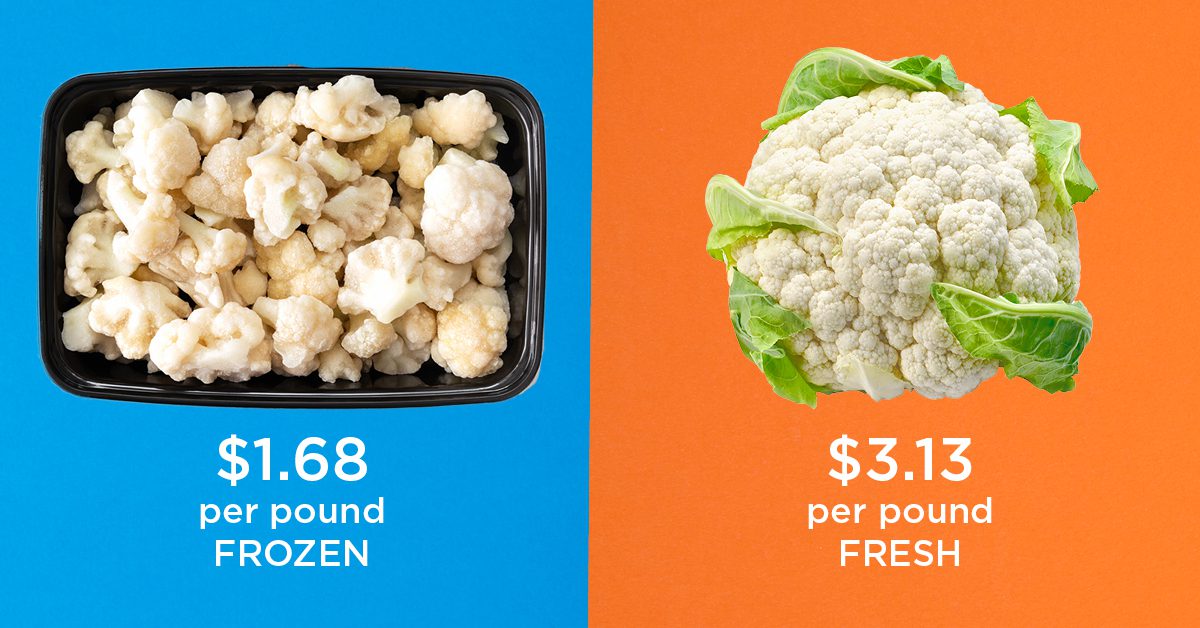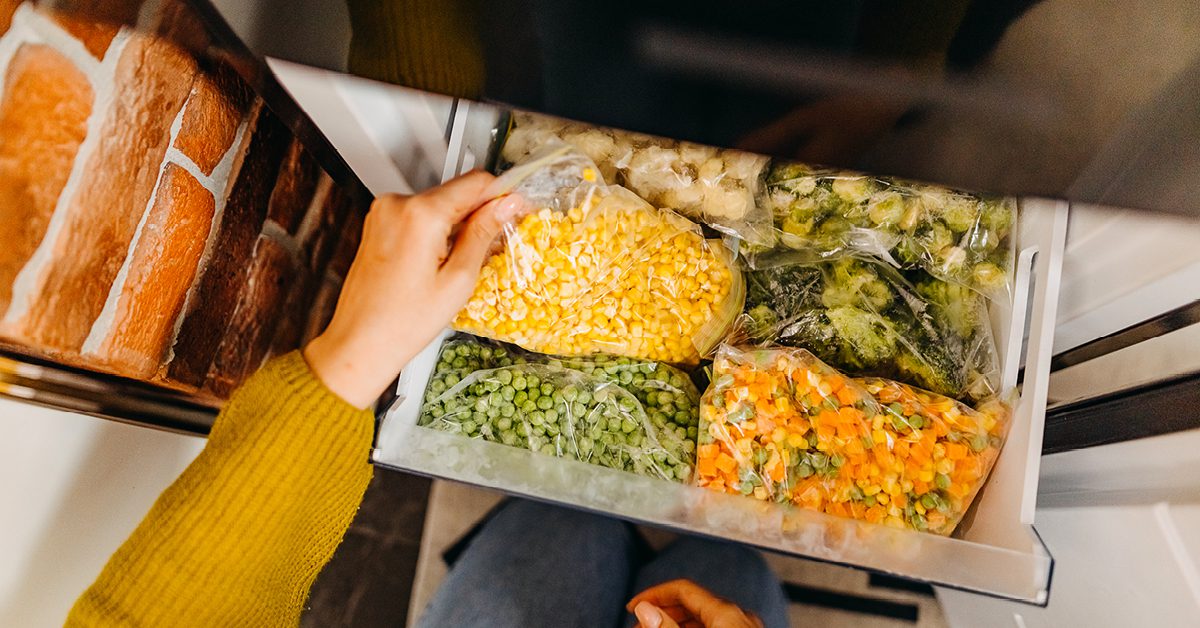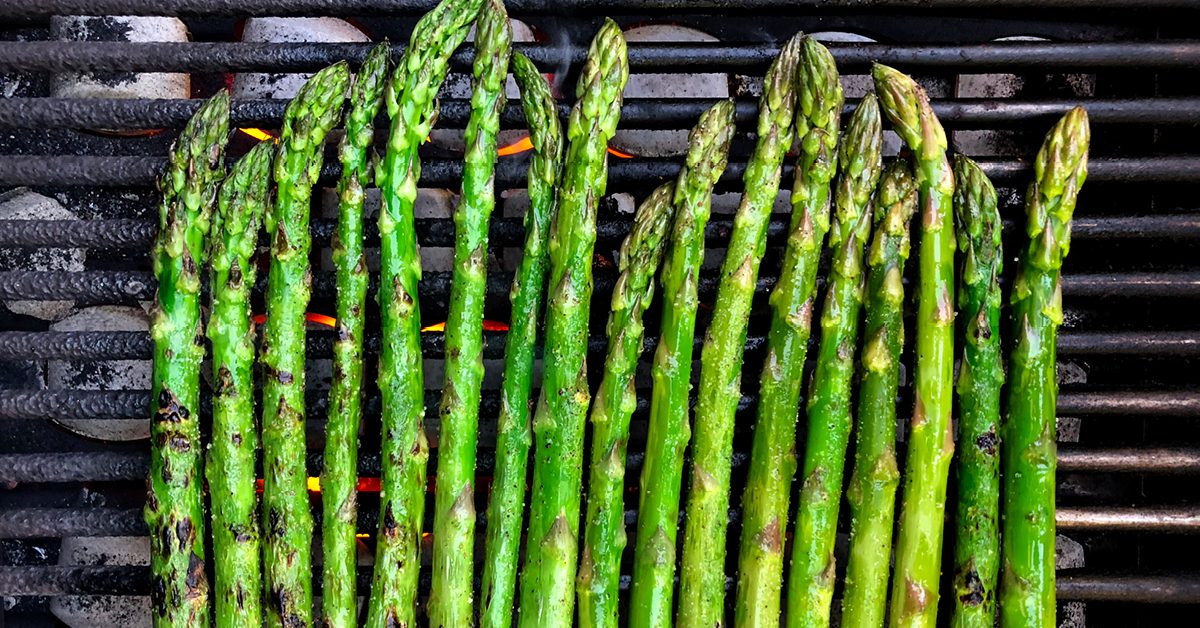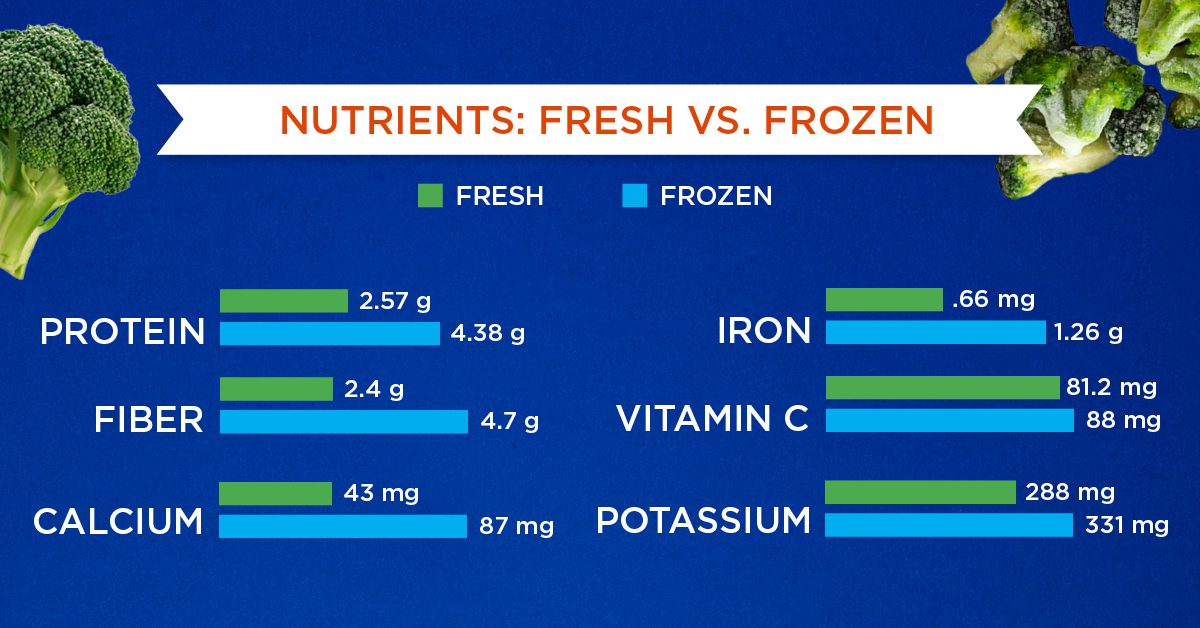WANT EVEN MORE HEALTHY IDEAS FROM SHAPE YOUR FUTURE?
First off, we mean no disrespect to fresh fruits and veggies. They’re delicious! They make great dipping tools. They also add a satisfying crunch to salads and slaws … but enough about them. Today, we’re celebrating their frozen counterparts. Discover why you shouldn’t give frozen fruits and veggies the cold shoulder — and how to win free groceries!
1. Frozen veggies are cheaper.

Frozen produce is the budget-friendly choice — period. Take cauliflower, for example. On average, frozen cauliflower sits at $1.68 per pound, but fresh cauliflower clocks in at $3.13 per pound — nearly double the price!
2. Frozen produce has a longer shelf-life.

The money-saving magic doesn’t end there either. Frozen produce also lasts longer — anywhere from 3 months to a whole year! This means you’ll waste less food … and go to the grocery store less often! That’s especially great news if you don’t live near a supermarket. Fresh produce only lasts a week or two, but you can extend its shelf-life with these selection and storage tips!
3. Frozen vegetables are picked when they’re perfectly ripe.

Have you ever bought fresh asparagus out of season? The spears are typically smaller, shriveled … and just sad! That’s because fresh produce is typically picked before it reaches peak ripeness. On the other hand, frozen produce tastes fantastic in every season!
4. Frozen veggies are just as healthy — if not more so!

Over the course of their journey from farm to table, fresh fruits and veggies are exposed to heat and light, which can lessen the value of some nutrients, like Vitamin C. Just be sure to choose frozen options without any added salt!
By now, you’re probably ready to clean out the entire frozen produce aisle! Harness that motivation and pick up some frozen veggies to enjoy this week!




